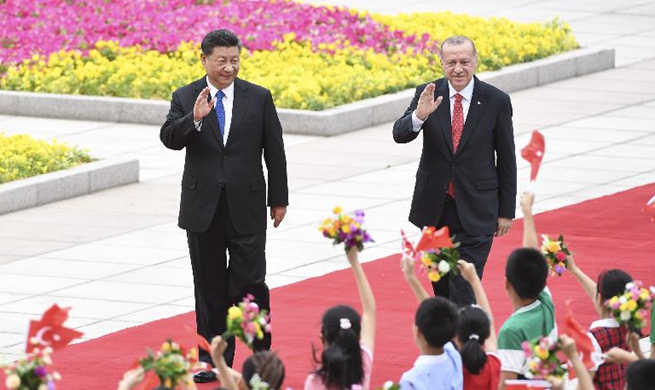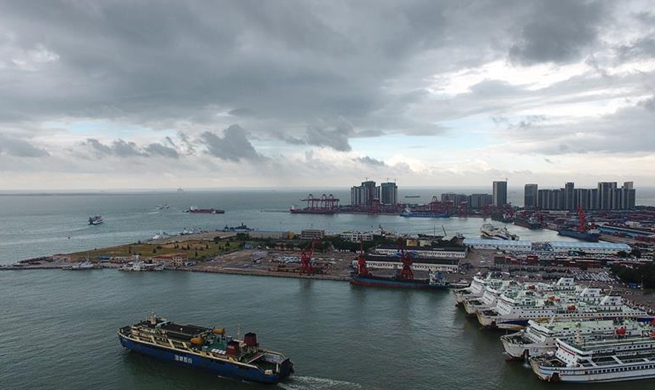by Xinhua Writer Wang Wen
NEW YORK, July 2 (Xinhua) -- Oil prices plunged on Tuesday as weak manufacturing data prompted investors' concern over weak crude oil demand.
The West Texas Intermediate for August delivery decreased 4.81 percent while Brent crude for September delivery dropped 4.09 percent.
Investors were worried that less robust manufacturing activity would lead to weaker crude oil demand and further increase the possibility of oversupply.
U.S. manufacturing activity expanded in June at the slowest pace in more than two years. The Institute for Supply Management (ISM) said its manufacturing index slipped to 51.7 percent in June from 52.1 percent in the prior month, attributing the decline to U.S. trade tensions with its major trading partners and mounting downside risks for global economy.
"Although the ISM manufacturing index didn't fall as far as feared in June, the decline in the more forward-looking new orders component suggests the worst is still to come," said Michael Pearce, a senior U.S. economist at the economic research consultancy Capital Economics, in a note.
Pearce pointed out a worrying decline in the new orders component of the ISM survey, which dropped from 52.7 in May to 50.0 for June.
"The weak incoming activity data from the rest of the world suggests that U.S. manufacturing conditions will continue to deteriorate in the near term," he said.
Alternatively, the seasonally adjusted IHS Markit final U.S. Manufacturing Purchasing Managers' Index (PMI) posted 50.6 in June, broadly in line with 50.5 in May, to signal only a marginal improvement in the health of the U.S. manufacturing sector.
June data signaled a further near-stagnation of operating conditions across the U.S. manufacturing sector, economists at the London-based global information provider IHS Markit said in a report.
Chris Williamson, a chief business economist at IHS Markit, said a major development in recent months has been the deteriorating performance of larger companies, where the last two months have seen the lowest PMI readings for a decade. After inventories rose sharply earlier in the year, large companies have moved to destocking in May and June amid a sharp slowing in new order inflows.
"Although business optimism about the future lifted slightly higher, it remained close to survey lows to indicate persistent low morale. Worries centered on signs of slowing demand both at home and internationally, weaker sales, and geopolitical uncertainty," Williamson said.
Both indices are consistent with economic growth slowing, to around 1 percent annualized in the second quarter, according to Pearce.
Concerns over weaker demand offset the positive impact brought about by an output cut deal extension among major oil exporters.
The Organization of the Petroleum Exporting Countries (OPEC) and other non-member oil exporters including Russia, or the OPEC+, agreed on Monday to extend an output cut deal for the next nine months.
However, analysts believed the extension of OPEC+ production quotas is unlikely to provide a sustained boost to prices, and many still see prices falling by the end of this year.
Samuel Burman, an assistant commodities economist at Capital Economics, said in a report on Tuesday that current prices are high enough to incentivize production both from within the OPEC+ and outside of the group. Saudi Arabia, Russia, and the United States will likely supply more oil in the coming months.
He added that global economic growth will continue to slow in the coming months, which will curb oil consumption growth.
"We reiterate our view that the price of oil will fall from 65 dollars per barrel currently to 60 dollars per barrel by end-2019 in large part due to weak demand," said Burman.













